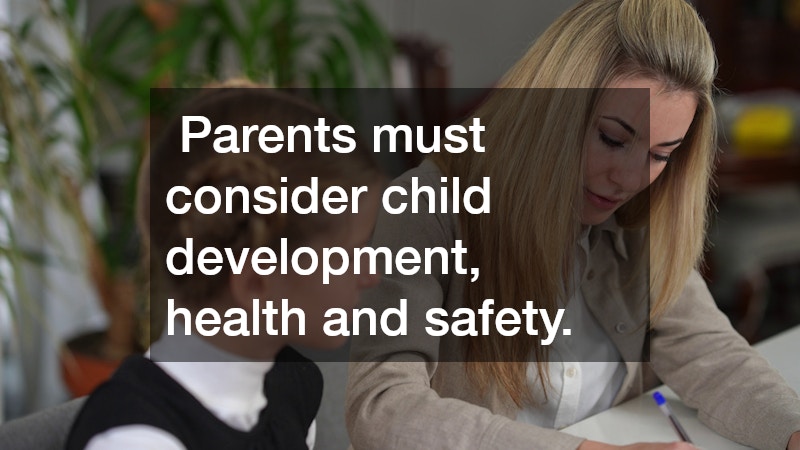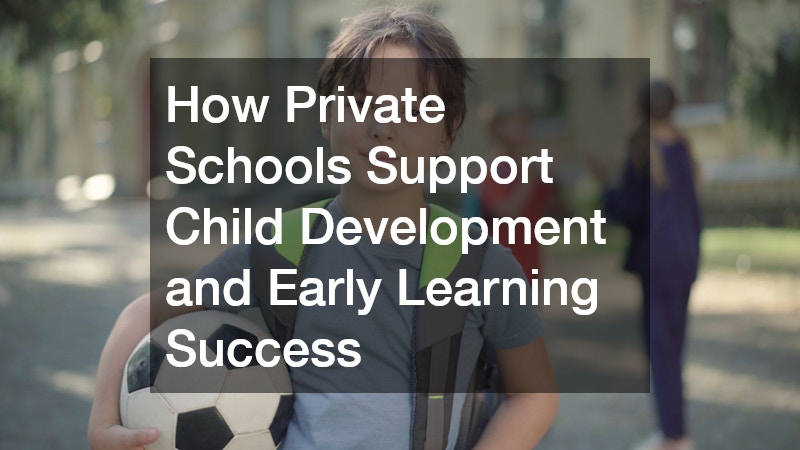How Private Schools Support Child Development and Early Learning Success
Selecting the right preschool for your child is one of the most important decisions a parent can make. Early education lays the foundation for lifelong learning, social skills, and personal development. Beyond academics, preschools play a critical role in shaping habits, fostering curiosity, and promoting emotional intelligence. Parents are looking for a setting that is safe, nurturing, and capable of adapting to the unique needs of each child.
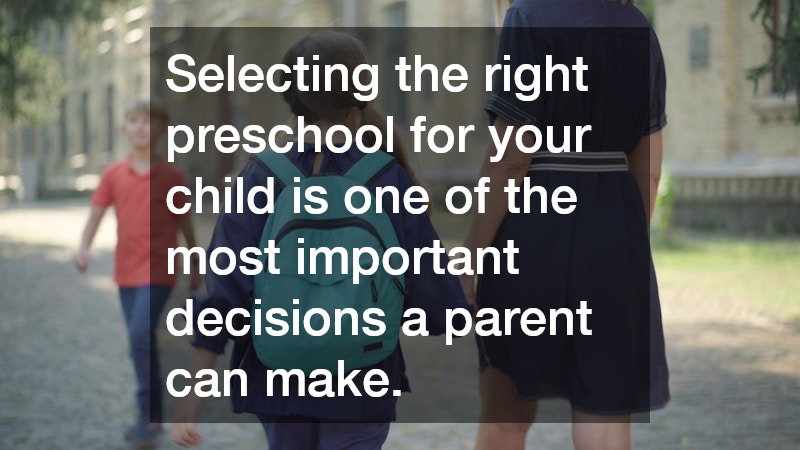
Choosing a preschool involves evaluating not only curriculum quality but also the school’s overall approach to care, communication with families, and readiness to handle emergencies. By understanding what makes a preschool exceptional, families can ensure that their children thrive both inside the classroom and at home. From enhancing cognitive abilities to building confidence, the early years are formative and deserve careful attention.
This guide offers practical insights and actionable strategies for parents navigating preschool selection. We explore essential factors such as developmental support, health and safety considerations, emergency planning, and community resources. With this information, you’ll be empowered to make informed decisions that support your child’s growth and provide peace of mind.
1. Assessing Early Learning Environments
Choosing the right learning environment is crucial for fostering your child’s growth. A private preschool should provide more than just childcare—it should offer a curriculum designed to stimulate learning and development. Here’s how to evaluate early learning environments:
-
Curriculum Quality: Look for structured programs that integrate math, language, art, and science activities. Ensure that lessons are age-appropriate and adaptable to individual learning paces. A strong curriculum should also encourage problem-solving, critical thinking, and creativity, giving children opportunities to explore and experiment in a safe setting.
-
Teacher Credentials: Teachers should have certifications in early childhood education. Staff with specialized training in childcare education are better equipped to handle diverse learning needs. Experienced teachers also provide mentorship and guidance that fosters confidence and independence in young learners.
-
Classroom Observation: Visit classrooms to observe interactions between teachers and children. A nurturing environment encourages curiosity, collaboration, and positive social behaviors. Notice whether children are engaged, excited to learn, and encouraged to express themselves freely.
-
Individual Attention: Check whether the school offers personalized learning plans or small teacher-to-child ratios to ensure focused attention for each student. Smaller class sizes allow educators to identify challenges early and provide targeted support where needed.
Additionally, consider the school’s philosophy on inclusivity and diversity. A preschool that values cultural awareness, social-emotional learning, and community engagement helps children develop empathy, respect, and strong interpersonal skills. Outdoor play areas, hands-on learning stations, and safe exploratory environments also contribute to holistic development.
A private preschool that emphasizes childcare education provides a strong foundation for lifelong learning while creating a safe and structured environment that meets the physical, emotional, and cognitive needs of children. By choosing a school that balances academics, social growth, and emotional support, parents set their children on a path toward confident, well-rounded development.
2. Understanding Child Development Needs
Early childhood is a critical period for developmental milestones, including cognitive, social, emotional, and motor skills. Parents should choose a school that actively supports child development through age-appropriate activities and a safe learning environment.
-
Milestone Tracking: Schools should monitor and encourage developmental milestones such as speech, motor coordination, problem-solving, and early literacy. Regular assessments help teachers identify strengths and areas needing additional support, allowing interventions to be tailored for each child.
-
Play-Based Learning: Structured play fosters creativity, socialization, and critical thinking skills. Activities like building blocks, role-playing, and sensory exploration engage children’s imagination while reinforcing practical learning concepts. Play-based learning also teaches cooperation, empathy, and conflict resolution.
-
Safety Measures: Staff trained in infant CPR ensure immediate response to medical emergencies, providing peace of mind for parents. Beyond emergency readiness, safe classroom layouts, secure playgrounds, and child-friendly materials contribute to an environment where children can explore confidently.
Additionally, schools that integrate emotional intelligence education help children understand and regulate their feelings, improving communication and resilience. Encouraging self-expression through art, music, and storytelling supports both cognitive and emotional growth. Consistent routines and positive reinforcement further enhance a child’s sense of stability and self-worth.
By combining milestone monitoring, play-based learning, and strong safety practices, preschools create an environment where children thrive academically, socially, and emotionally. Programs that prioritize child development ensure that each student builds a solid foundation for future success, cultivating confidence, independence, and a lifelong love of learning.
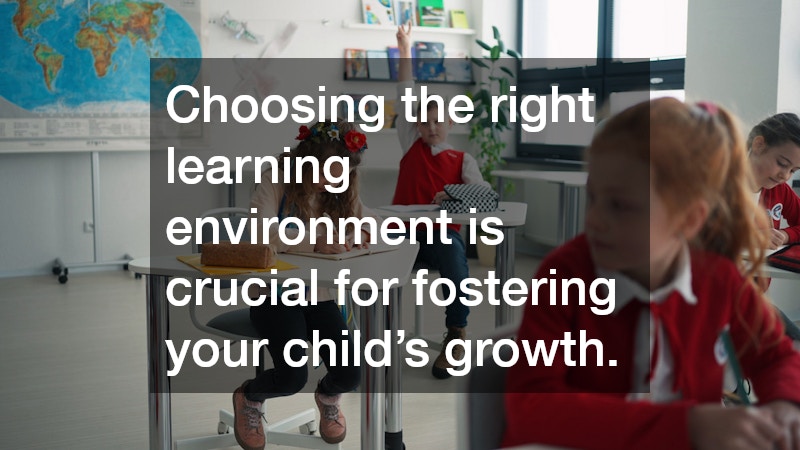
3. Health and Safety Considerations
A child’s health is fundamental to their success in a preschool setting. Early dental care plays a significant role in overall well-being, and schools can support parents in maintaining good habits.
-
Regular Dental Checkups: Coordinate visits with a children dentist to prevent cavities, ensure proper oral development, and establish positive dental habits. Early exposure to dental routines helps children feel comfortable during appointments and encourages consistent oral hygiene at home.
-
Family Dentist Collaboration: Schools can offer resources or workshops to educate families on preventative dental care, reinforcing consistent practices at home. Guiding proper brushing techniques, nutrition, and fluoride use ensures children develop strong, healthy teeth.
Beyond oral care, comprehensive health policies are essential:
-
Clear guidelines for managing illnesses, allergies, and medical emergencies keep children safe while minimizing disruptions to learning.
-
Staff trained in infant CPR and first aid ensures immediate, competent responses to emergencies, which can be life-saving.
-
Regular sanitation practices, proper handwashing routines, and monitoring for contagious illnesses help maintain a healthy environment for all students.
Preschools that prioritize both preventive care and safety procedures cultivate an atmosphere of trust and reliability. Children benefit not only from protection against common health issues but also from learning healthy habits early, setting the stage for lifelong wellness. A safe, health-conscious environment allows children to focus on learning, social interaction, and play, all essential components of early childhood development.
4. Preparing for Unexpected Challenges
Unexpected events can disrupt a child’s learning environment, making preparedness essential. Incidents such as school water damage, severe weather, or accidental injuries can affect not only the physical infrastructure but also the overall learning experience. Planning ensures that children remain safe and that education continues with minimal interruptions.
-
Emergency Plans: Confirm that the preschool has comprehensive response procedures for emergencies. This includes clear evacuation routes, designated safe areas, and protocols for contacting parents promptly. Schools should also have contingency plans for temporary relocation if classrooms or facilities are compromised by issues like water damage or structural repairs. Staff should be trained regularly to implement these plans efficiently and calmly.
-
Communication Strategies: Effective communication between the school and families is critical during unexpected events. Parents should receive timely updates on the nature of the disruption, expected duration, and any actions required on their part. This reduces confusion and ensures that children are picked up or transported safely when necessary.
-
Documentation and Record-Keeping: Maintaining detailed records of any incidents, repairs, and inspections is vital. Documentation helps schools track recurring problems, plan preventive maintenance, and provide transparency to parents. In the case of school water damage, records of structural assessments, dehumidification efforts, and cleaning processes demonstrate that the school took appropriate precautions.
-
Legal Guidance: For situations involving liability, property disputes, or injury claims, consulting local lawyers can help families and schools understand their legal rights and responsibilities. Early legal consultation can prevent conflicts from escalating and ensure that all parties adhere to applicable regulations and insurance requirements.
By proactively addressing potential disruptions, parents and schools can create a resilient learning environment. Children benefit from continuity in their routines, while families gain confidence that their child’s safety and education are prioritized, even when unexpected challenges arise.
5. Legal and Administrative Considerations
Legal and administrative clarity is essential for parents, particularly in non-traditional family situations or when unique guardianship arrangements exist. Ensuring that all documentation is accurate, up-to-date, and understood by both parents and school staff helps protect children and avoids potential disputes.
-
Contracts and Policies: Carefully review enrollment agreements and policy manuals. Pay close attention to tuition payment schedules, refund policies, discipline protocols, and emergency procedures. Understanding the rules in advance allows parents to anticipate obligations and prevents surprises during the school year. Schools should clearly communicate policies regarding drop-off and pick-up, illness protocols, and participation in field trips or special events.
-
Adoption Support: Families working with an adoption agency may face unique administrative requirements. Ensure the preschool acknowledges legal guardianship arrangements and maintains copies of all relevant documentation. Staff should be aware of who has the legal right to make decisions regarding the child, including medical care and emergency contacts. Schools that proactively accommodate adoption-related needs foster an inclusive and supportive environment for all children.
-
Legal Consultation: Engaging a local lawyer can clarify parental responsibilities, ensure compliance with local regulations, and protect children’s interests. Legal advice can be particularly valuable for blended families, guardianships, or any situation where custody and decision-making authority may be complex. A local lawyer can also help interpret any state-specific rules regarding preschool enrollment and child care obligations.
-
Record-Keeping and Administration: Keeping thorough records of legal documents, permissions, and correspondence with the school is crucial. Organized documentation helps in case of disputes, emergencies, or transitions between schools. Parents should ensure the school maintains confidential and secure storage of sensitive information.
By prioritizing legal and administrative considerations, parents create a foundation of transparency and trust with the school. This preparation not only minimizes potential conflicts but also ensures that children receive consistent support in a structured, safe, and legally compliant environment.
6. Creating a Supportive Home-School Connection
Active parent involvement enhances learning outcomes. By reinforcing school initiatives at home, children experience consistent development and growth.
-
Routine Reinforcement: Encourage skills learned at school, including literacy, problem-solving, and social interactions.
-
Communication: Maintain regular contact with teachers to discuss progress and behavioral concerns.
-
Home Activities: Engage in play-based learning activities that support child development milestones.
A strong home-school partnership ensures children thrive academically and emotionally, fostering a cohesive learning environment.
7. Enhancing the Overall Preschool Experience
To maximize a preschool’s value, families should look for programs that go beyond basic academics.
-
Enrichment Activities: Music, art, sports, and sensory activities enhance cognitive and social skills.
-
Safety Training: Staff trained in infant CPR ensures immediate emergency response, fostering a secure environment.
-
Confidence Building: Programs that encourage problem-solving and exploration help children develop independence and resilience.
By prioritizing holistic experiences, parents ensure children receive a well-rounded education that prepares them for future success.
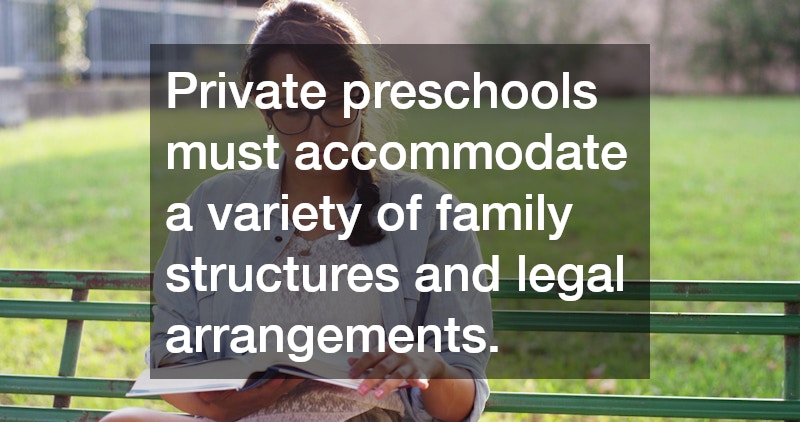
8. Choosing the Right Healthcare and Community Support
Selecting supportive healthcare providers complements school-based learning and ensures comprehensive care.
-
Pediatric Coordination: Align visits with school schedules to minimize disruption.
-
Preventive Care: A family dentist provides long-term oversight of oral health, while children’s dentists address early developmental concerns.
-
Health Education: Schools can collaborate with healthcare professionals to provide workshops for children and families.
These practices reinforce healthy habits, prevent avoidable health issues, and enhance children’s overall development.
9. Preparing for Emergencies and Unexpected Events
Emergencies can arise at any time, and preparedness is key to minimizing their impact.
-
Emergency Kits: Schools should maintain supplies and safety tools for incidents like school water damage or severe weather.
-
Liability and Insurance: Consult local lawyers to clarify responsibilities and coverage in case of injury or property damage.
-
Communication Plans: Keep families informed and provide clear instructions for emergencies.
A proactive approach ensures children remain safe and educational disruptions are minimized.
10. Supporting Diverse Family Needs
Private preschools must accommodate a variety of family structures and legal arrangements.
-
Inclusive Policies: Ensure the school welcomes children from diverse family backgrounds, including adoptive families.
-
Legal Documentation: Work with a local lawyer to ensure all guardianship and adoption papers are correctly filed and recognized by the school.
-
Support Resources: Schools may provide guidance or resources for families navigating adoption, legal concerns, or other special circumstances.
Supporting diverse families strengthens the community and ensures equitable access to quality education for all children.
Choosing the right private preschool involves far more than selecting a convenient location or appealing curriculum. Parents must consider child development, health and safety, legal requirements, and emergency preparedness. By evaluating schools thoughtfully and collaborating with professionals, families can ensure children receive a nurturing, enriching, and secure learning environment.
From fostering early cognitive and social skills to maintaining safety standards and supporting family needs, a high-quality preschool lays the foundation for lifelong success. Engaging actively with schools, healthcare providers, and legal resources ensures children’s education remains uninterrupted, comprehensive, and tailored to their unique needs. Making informed decisions now creates lasting benefits for children, families, and the broader community.
